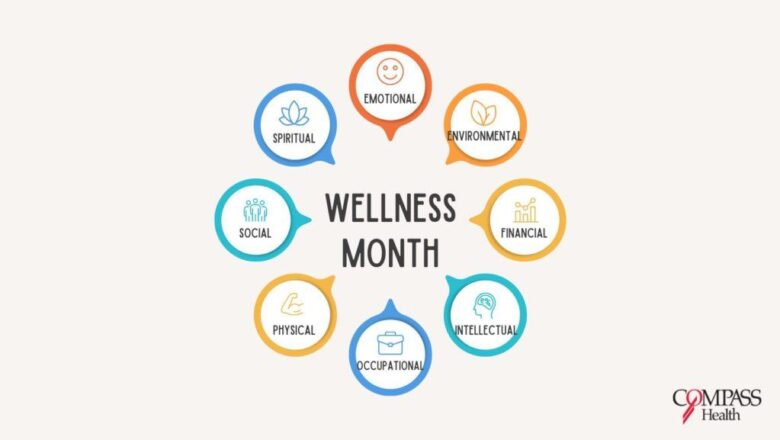In an era where health and wellness have taken center stage in our lives, the quest for holistic well-being often leads us down a myriad of pathways. Among the many discussions surrounding vitality, energy, and longevity, one topic stands out: testosterone therapy. Once shrouded in stigma and limited understanding, testosterone, a hormone commonly associated with masculinity, is now being re-evaluated for its broader implications on overall wellness for both men and women. This article embarks on a journey through the nuances of testosterone therapy, exploring its potential benefits, the science behind its use, and the important considerations to keep in mind. As we uncover the layers of this hormone and its role in our health, we invite you to reconsider preconceived notions and delve into the promising possibilities that testosterone therapy may offer in the pursuit of a healthier, more balanced life.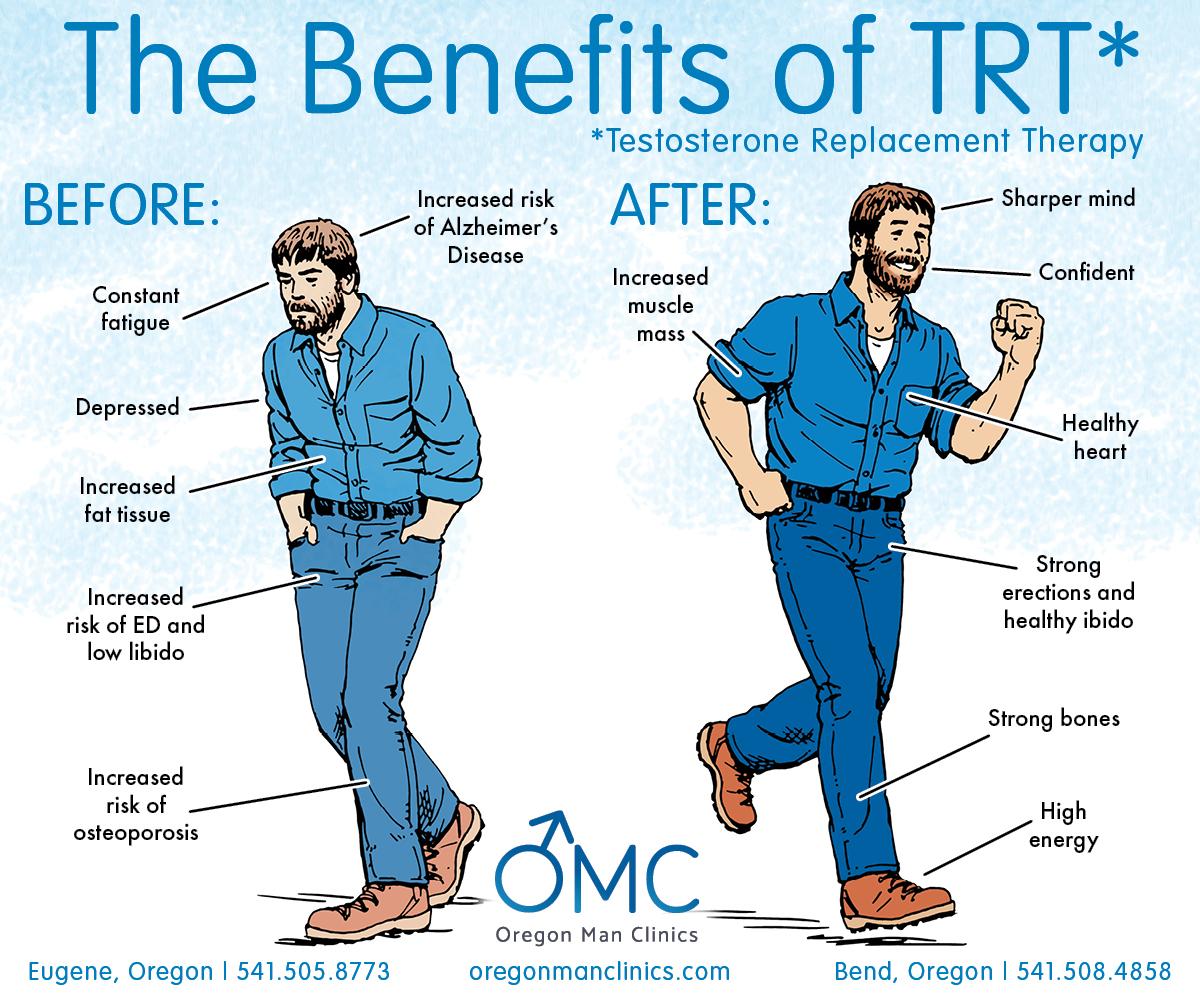
Understanding Testosterone Therapy and Its Role in Wellness
Testosterone therapy has increasingly gained attention for its potential benefits in promoting overall wellness. In men and women alike, testosterone plays a crucial role in various bodily functions and emotional well-being. When testosterone levels are balanced, individuals often experience enhanced mood, energy, and libido. However, when these levels dwindle due to age, stress, or medical conditions, many may encounter issues such as fatigue, depression, and diminished quality of life. The therapy aims to restore these levels, leading to potential improvements in several key areas:
- Improved Mood: Many recipients report greater emotional stability and a decrease in symptoms of depression.
- Increased Energy: Enhanced vitality and reduced fatigue are commonly noted effects.
- Enhanced Libido: Furthermore, libido and sexual satisfaction often improve significantly.
The type and method of testosterone therapy can vary widely. From injections to skin patches or gels, each option presents unique advantages depending on individual health profiles and lifestyle preferences. It’s essential for anyone considering this therapy to consult healthcare professionals for a thorough evaluation to ensure its safety and efficacy. Below is a quick overview of common therapy types:
| Type of Therapy | Administration Method | Frequency |
|---|---|---|
| Testosterone Injections | Intramuscular or Subcutaneous | Every 1-2 weeks |
| Transdermal Gels | Applied to skin | Daily |
| Pellets | Implanted under the skin | Every 3-6 months |
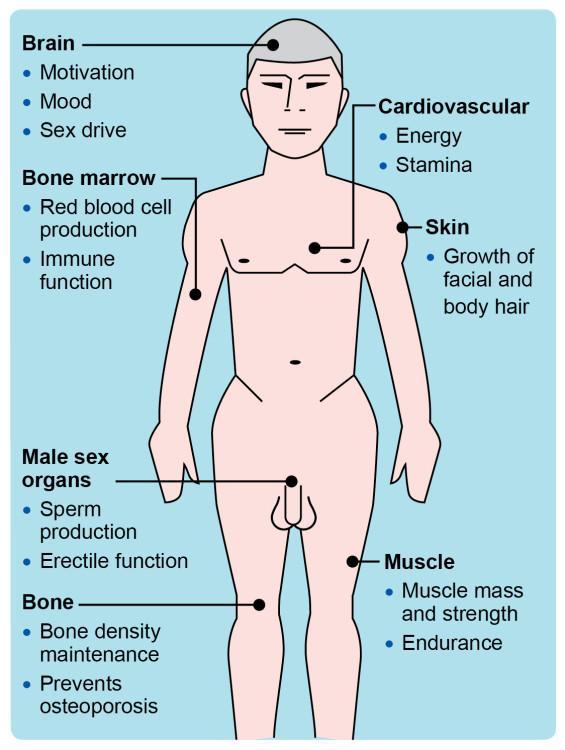
The Biological Foundations: How Testosterone Affects the Body
Testosterone is more than just a hormone associated with masculinity; it plays a pivotal role in both men and women, influencing a plethora of physiological functions. This steroid hormone is essential for the development of muscle mass and strength, contributing to physical performance and endurance. In addition to its anabolic properties, testosterone aids in the maintenance of bone density, helping to prevent osteoporosis. The following systems are significantly affected by testosterone:
- Muscular system: Enhances muscle growth and recovery.
- Cardiovascular system: Supports heart health and circulation.
- Metabolism: Regulates fat distribution and energy levels.
- Mood stability: Influences mood and cognitive functions.
- Libido: Affects sexual health and reproductive functions.
The decline in testosterone levels, often associated with aging or certain medical conditions, can lead to a variety of health concerns. This deficiency may manifest as fatigue, decreased muscle mass, and mood fluctuations, affecting overall quality of life. Consequently, testosterone therapy emerges as a viable option for those seeking to restore balance. Consider the following potential benefits of testosterone therapy:
| Benefit | Description |
|---|---|
| Improved Mood | May alleviate symptoms of depression and anxiety. |
| Increased Energy | Boosts vitality and reduces feelings of fatigue. |
| Enhanced Athletic Performance | Improves strength and endurance. |
| Better Sexual Health | Increases libido and sexual satisfaction. |
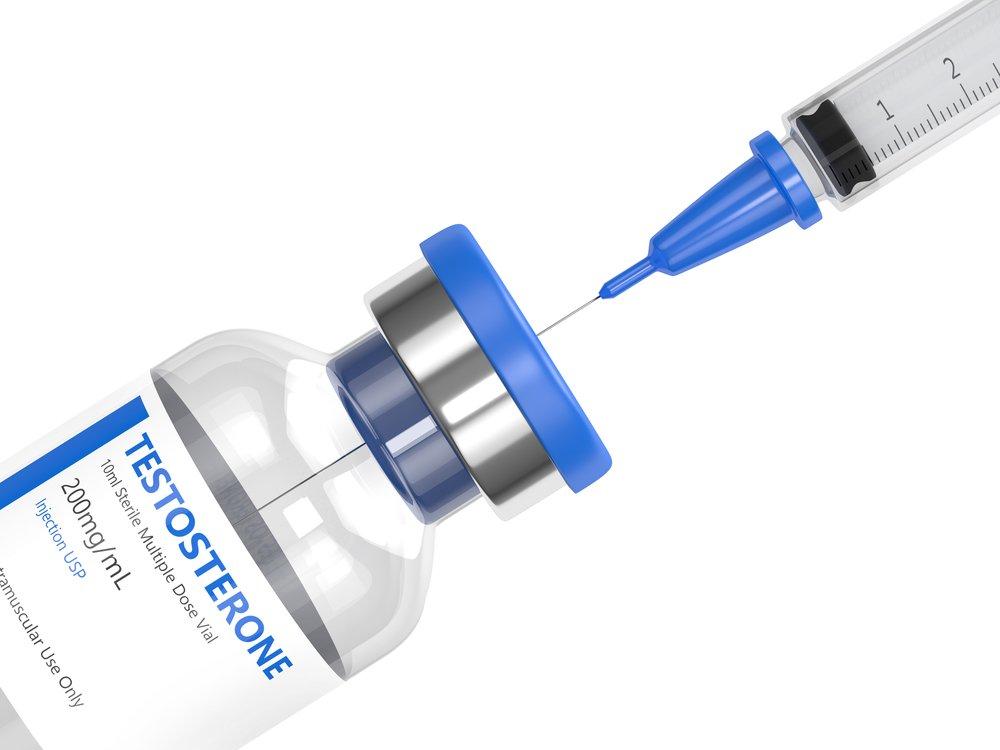
Evaluating the Benefits: Enhancing Mood, Energy, and Vitality
Testosterone therapy has emerged as a transformative approach for many individuals seeking to elevate their overall wellness. One of the most significant benefits attributed to this therapy is its potential to enhance mood, thereby reducing feelings of anxiety and depression. Research indicates that optimized testosterone levels can lead to a noticeable improvement in feelings of well-being, instilling a sense of vigor and positivity. This mood enhancement is not merely anecdotal; many patients report feeling more emotionally stable and motivated following treatment, making daily challenges feel less daunting.
In addition to mood elevation, testosterone therapy can be a catalyst for boosting energy levels and enhancing overall vitality. Individuals often experience an increase in physical endurance and stamina, contributing to a more active lifestyle. The table below summarizes some common benefits associated with testosterone therapy, illustrating its multifaceted impact on health and vitality:
| Benefit | Description |
|---|---|
| Mood Improvement | Reduces anxiety and increases feelings of well-being. |
| Increased Energy | Promotes higher stamina for daily activities. |
| Enhanced Vitality | Boosts physical health and life satisfaction. |
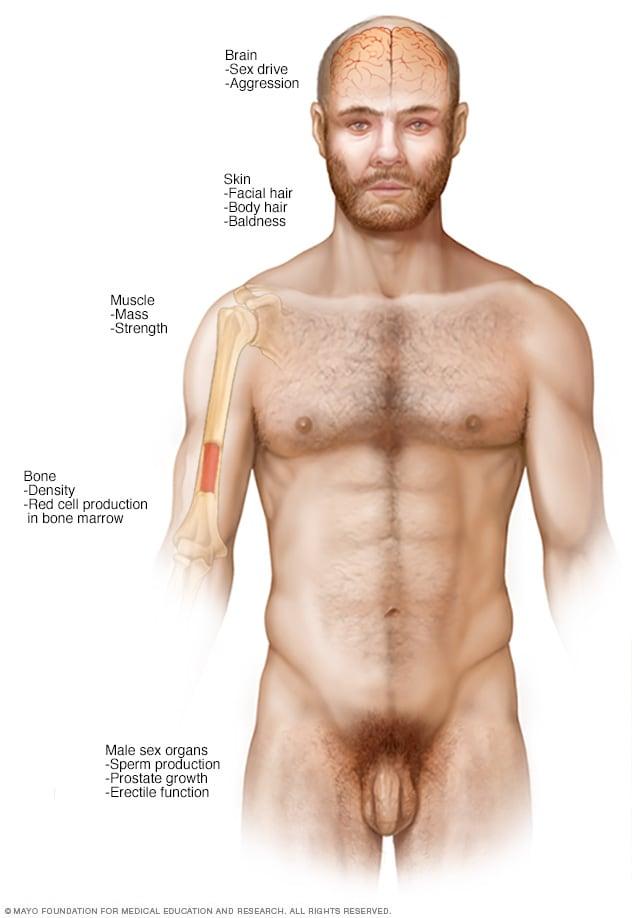
Potential Risks and Side Effects: What You Need to Know
While testosterone therapy can offer various benefits for overall wellness, it is crucial to acknowledge the potential risks and side effects associated with this treatment. Individuals considering therapy should consult with a healthcare professional to ensure proper monitoring and management. Some of the common side effects may include:
- Fluid Retention: Increased water retention can lead to swelling in the extremities.
- Acne and Oily Skin: Hormonal changes can cause skin issues that may be bothersome for some individuals.
- Sleep Apnea: Those undergoing testosterone therapy may experience worsened sleep apnea symptoms.
- Mood Changes: Fluctuations in testosterone may affect mood, leading to irritability or mood swings.
Additionally, there are more serious yet less common risks that require careful consideration. It is essential to recognize that some individuals may experience:
| Risk | Description |
|---|---|
| Cardiovascular Issues | Potential for increased blood pressure and risk of heart disease. |
| Prostate Health | Possible growth of prostate tissue, leading to discomfort or complications. |
| Blood Clots | Higher risk of thromboembolic events like deep vein thrombosis. |
Given these potential side effects, a balanced approach and regular health monitoring are paramount to harness the benefits of testosterone therapy while safeguarding one’s well-being.
Recommended Guidelines: Finding the Right Dosage and Administration
When it comes to testosterone therapy, determining the correct dosage is crucial for achieving optimal outcomes. It is essential to consider individual health factors, such as age, body composition, and specific health conditions. Consulting with a healthcare provider is vital, as they can tailor a plan suited to individual needs. In general, the recommended starting dosages may include:
- Injection therapy: Typically ranges from 50 to 200 mg every 1-2 weeks.
- Patches: Usually prescribed at a dose of 2-4 mg per day.
- Gels: Doses generally vary from 25 to 100 mg applied daily.
The method of administration also plays a vital role in the therapy’s effectiveness. Different delivery systems can result in varying absorption rates and overall efficacy. Here’s a brief overview of common administration options:
| Administration Method | Advantages | Considerations |
|---|---|---|
| Injections | Rapid increase in testosterone levels | Requires medical visits or self-administration skills |
| Patches | Consistent release over 24 hours | Skin irritation possible |
| Gels | Convenient and easy to apply | Risk of transfer to others if not applied correctly |
Lifestyle Factors: Complementing Therapy with Healthy Habits
Incorporating positive lifestyle changes can significantly enhance the effectiveness of testosterone therapy. Engaging in regular physical activity not only boosts your energy levels but also supports hormonal balance. Embrace activities like strength training and cardiovascular exercises, which can increase muscle mass and improve heart health. Here are some additional habits to consider:
- Balanced Diet: Prioritize whole foods rich in nutrients, including lean proteins, healthy fats, and plenty of fruits and vegetables.
- Sufficient Sleep: Aim for 7-9 hours of quality sleep per night to promote recovery and hormonal balance.
- Stress Management: Incorporate mindfulness practices, such as meditation or yoga, to reduce stress levels and improve emotional well-being.
Moreover, social interactions and mental stimulation play crucial roles in overall wellness. Building strong relationships and engaging in community activities can provide emotional support and enhance life satisfaction. To visualize the impact of lifestyle changes on wellness, consider the following table:
| Lifestyle Factor | Impact on Wellness |
|---|---|
| Regular Exercise | Increases energy, reduces fatigue |
| Healthy Eating | Supports hormonal function |
| Quality Sleep | Enhances recovery and mood |
| Social Connections | Reduces stress and anxiety |
Consulting the Experts: When to Seek Professional Guidance
Deciding to explore testosterone therapy can be a significant step towards enhancing overall wellness, but it’s crucial to recognize when professional guidance is necessary. Whether you’re dealing with symptoms that may indicate low testosterone levels or simply seeking to optimize your health, a healthcare professional can provide invaluable insights. Consulting with an expert can help identify the underlying causes of hormonal imbalances and determine if testosterone therapy is appropriate for your specific situation. This collaboration ensures that you receive personalized recommendations and a comprehensive treatment plan tailored to your needs.
Several key indicators signal that it might be time to reach out to a specialist:
- Persistent Fatigue: If you’re experiencing unusual levels of tiredness that rest doesn’t alleviate.
- Reduced Libido: Noticeable changes in sexual interest or satisfaction that affect your quality of life.
- Muscle Weakness: Difficulty maintaining or gaining muscle mass despite regular exercise.
- Mood Changes: Increased feelings of irritability, anxiety, or depression that are out of character.
Additionally, understanding the potential risks and benefits associated with testosterone therapy is vital. Engaging with professionals can help you weigh these factors effectively:
| Benefits | Risks |
|---|---|
| Increased energy levels | Possible weight gain |
| Enhanced mood stability | Potential cardiac concerns |
| Improved muscle strength | Risk of prostate enlargement |
| Boosted libido | Hormonal fluctuations |
Q&A
Q&A on Testosterone Therapy for Overall Wellness
Q1: What is testosterone therapy and who is it for?
A: Testosterone therapy is a medical treatment designed to restore hormone levels in individuals experiencing low testosterone, commonly known as “low T.” This therapy is often aimed at men, especially those over the age of 30, but it can also be beneficial for women who have hormonal imbalances. The goal is to enhance overall wellness, including physical health, mental clarity, and emotional balance.
Q2: What are the signs of low testosterone levels?
A: Low testosterone levels can manifest in various ways. Common signs include fatigue, decreased libido, mood swings, muscle loss, and difficulty concentrating. Men may also experience increased body fat and reduced bone density, while women might face challenges such as prolonged fatigue and reduced sexual interest.
Q3: How does testosterone therapy contribute to overall wellness?
A: Testosterone therapy can enhance overall wellness by improving energy levels, boosting mood, and increasing muscle mass. Many individuals report better cognitive function and improved motivation. For women, balancing testosterone levels can help with mood regulation and improve bone health, contributing to a more vibrant lifestyle.
Q4: Are there different methods of testosterone therapy?
A: Yes, testosterone therapy comes in various forms, including injections, topical gels, patches, and pellets. Each method has its pros and cons, and the choice often depends on personal preference, lifestyle, and medical history. Consultation with a healthcare professional can help determine the most suitable option.
Q5: Is testosterone therapy safe, and what are the potential side effects?
A: Like any medical treatment, testosterone therapy carries potential risks and side effects. Some individuals may experience acne, hair loss, and fluid retention, or in rare cases, an increase in red blood cell count or prostate issues. It’s crucial for patients to have a thorough discussion with their healthcare provider to weigh the benefits against the risks and to engage in regular monitoring.
Q6: Can lifestyle changes enhance the effects of testosterone therapy?
A: Absolutely! Complementing testosterone therapy with healthy lifestyle changes can amplify its benefits. Regular exercise, a balanced diet, adequate sleep, and stress management techniques can help optimize hormone levels and improve overall wellness. These changes not only enhance the effectiveness of the therapy but also contribute to long-term health outcomes.
Q7: How long does it take to see results from testosterone therapy?
A: The timeline for experiencing results can vary from person to person. Some individuals may notice improvements in mood and energy within a few weeks, while physical changes like increased muscle mass might take several months. Consistency in treatment and accompanying lifestyle changes play a significant role in the speed of results.
Q8: Is testosterone therapy a lifelong commitment?
A: While some individuals may benefit from long-term testosterone therapy, it’s not necessarily a lifelong commitment for everyone. The duration of treatment depends on individual needs, health goals, and hormonal responses. Regular check-ups with a healthcare provider can help determine the need for ongoing therapy and monitor overall health.
Q9: Can both men and women benefit from testosterone therapy?
A: Yes, testosterone therapy can benefit both men and women, though the approach and dosage may differ. Women also produce testosterone, and low levels can lead to fatigue, reduced libido, and mood fluctuations. A tailored therapy plan can help restore balance and improve overall wellness in both men and women.
Q10: What should individuals consider before starting testosterone therapy?
A: Before starting testosterone therapy, individuals should assess their overall health, discuss symptoms with a healthcare provider, and get comprehensive hormonal evaluations. It’s vital to consider personal health history, possible interactions with other medications, and to set realistic expectations for what therapy can achieve. Open communication with a trusted medical professional is key to a successful treatment plan.
—
This Q&A aims to shed light on the topic while encouraging readers to explore testosterone therapy responsibly and holistically for their wellness journey.
In Conclusion
In the evolving landscape of health and wellness, testosterone therapy emerges as both a beacon of hope and a subject of careful consideration. As we navigate the intricate pathways of hormones and their impact on our well-being, it becomes clear that this form of therapy is not a one-size-fits-all solution. Instead, it requires a thoughtful approach, guided by medical expertise and informed personal choices.
As research progresses and our understanding deepens, the potential benefits of testosterone therapy for overall wellness are becoming increasingly evident—ranging from enhanced energy levels to improved mental clarity. Yet, the dialogue surrounding it remains essential; what works for one individual might not resonate with another, and it is crucial to prioritize safety, efficacy, and ethical considerations in this journey.
Ultimately, the pursuit of wellness is a deeply personal endeavor, and the decision to explore testosterone therapy should be made with care and comprehensive medical counsel. As we continue to explore the multifaceted relationship between hormones and health, let us remain informed and open-minded, steering our paths toward holistic well-being that honors both individual needs and scientific integrity.

